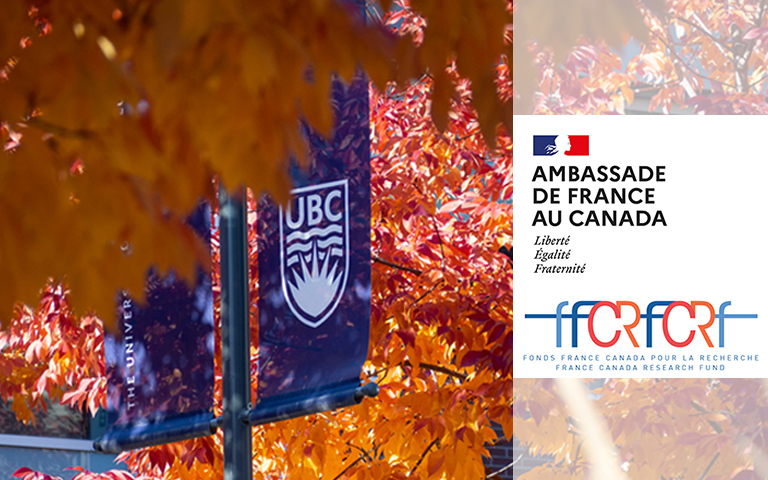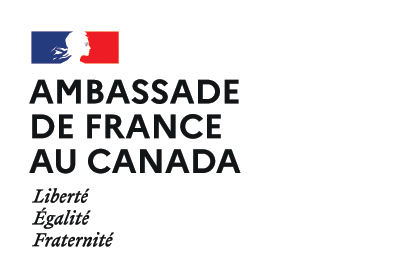
From solar fuels to solar systems, and optimization algorithms in between, three France-Canada partnerships involving UBC researchers are poised to advance important fundamental and applied research questions through exciting new collaborations.
Funding to support these partnerships was recently awarded through the France Canada Research Fund (FCRF). In addition to addressing these research questions, funded projects also provide experience that advances student and trainee careers and are intended to be the start of longer-term collaborations. The FCRF supports French and Canadian research teams to collaborate for the first time. It was created in 2000 through an agreement between the French Embassy in Canada and a consortium of Canadian universities, and has since funded more than 350 projects. Laureates are awarded grants to fund research and student mobility between the two countries.
New UBC Partnerships
The new partnership projects involving UBC research teams will benefit from combining complementary research expertise and approaches as well as access to specialist equipment and facilities at each of the institutions, in addition to valuable career experience for students.
- Dr. Robert Godin, an assistant professor in chemistry at UBC’s Okanagan campus, is collaborating with Dr. Marc Robert at the Université de Paris to advance solar fuel systems. Their long-term goal for this project is mitigating CO2 emissions through artificial photocatalytic systems, inspired by the natural photosynthesis of plants. These systems harness the energy of sunlight and convert it to chemical energy in the bonds of high energy molecules, termed solar fuels. The potential widespread adoption of solar fuels could contribute to a reduction of humanity’s reliance on fossil fuels and could generate a carbon-neutral or carbon-free energy cycle. Godin and Robert’s project will combine the expertise of the two research teams to focus on using assemblies of carbon nitride and molecular catalysts in the photocatalytic process of the solar-to-fuel energy conversion. Dr. Robert’s team is internationally renowned for developing a variety of earth-abundant, metal-based catalysts that are able to selectively convert CO2 with high efficiency. Dr. Godin’s world-leading team studies the movement of electrons in carbon nitride and, for this collaboration, provides access to state-of-the art spectroscopic equipment. Collaboration between the groups will engage PhD students in developing a greater understanding of multicomponent assemblies for artificial photosynthesis. The lessons learned from small lab scale investigations will be applied in the development of larger-scale demonstration systems, important to accelerate technology deployment. Ultimately, the aim is to produce scalable and sustainable solar-fuel systems that are cost-competitive with fossil fuel-derived energy.
- Dr. Warren Hare, a professor in the Department of Computer Science, Mathematics, Physics and Statistics at UBC’s Okanagan campus is partnering with Dr. Clement Royer at the Université Paris Dauphine-PSL. They are bringing together complementary approaches in the field of optimization in mathematics, which is concerned with how to find the minimum or maximum of a given function. Applications of optimization range from healthcare (minimizing the side-effects of treatments) and energy generation (maximizing output) to essentially every field of scientific research. The project focuses on what is known as black-box simulation — where the researcher cannot fully see how values are calculated — and offers career development opportunities for PhD students at each university. The students will expand their professional networks and benefit from mentorship and research-based training opportunities outside of their home universities as they help to establish what is hoped to be a long-term collaboration.
- Dr. Brett Gladman, a professor of astronomy at UBC’s Vancouver campus, is collaborating with Dr. Jacques Laskar of the Institute of Celestial Mechanics & Computation of Ephemerides (a research lab of the Centre National de la Recherche Scientifique) to improve our knowledge of massive objects in the outer solar system. The project will focus on the Kuiper Belt, a set of objects that inhabit the region beyond Neptune. The French team brings world-leading expertise on orbit and mass determination from the ephemeris computation method, while the Canadian team offers information from direct observational telescopic surveys, and an understanding of the origin and dynamical evolution of the outer solar system. Together, by combining access to high-performance computing systems and offering collaborative opportunities for PhD students, the team has the unique opportunity to evaluate the feasibility of some proposals that suggest very massive planets still lurk beyond Neptune. The results could ultimately reject the notion of such a large object existing, or could alternatively suggest that it must be in existence as well as provide insights as to where it could be found.
Visit the France Canada Research Fund website for more information on how the fund can spark new collaborations and leverage additional funding opportunities between our two countries.
photo credit : Margo Yacheshyn / University Relations, UBC Okanagan

